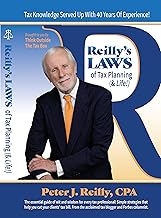Phil Mickelson has created a storm of controversy by his comment that he was considering making drastic changes because of the onerous tax rate that he is now subject to. Then he apologized creating more controversy. I think it was a stupid remark, but not for the reasons that other bloggers are citing. I think the remark may have put a dent in a solid tax plan. I’m thinking domicile. If you are preparing to change your domicile, going very public on your annoyance with tax rates is a very bad idea.
What Is Not So Dumb
Tax geeks were scratching their heads trying to figure out how he got to 62%. Forget that. The top marginal rate for a high income California resident is clearly in the 50% ballpark (or golf course in the case of Mickelson). If you read the comments sections of a lot of general tax articles you will see that a lot of people claim that 50% is a tipping point. If they are paying more in taxes than they get to keep, it is just not worth it. Being old enough to recall much higher marginal rates than we now have and how hard people worked then to make money, I think some of those people may be kidding themselves. Nonetheless, annoyance at having your taxes greater than your take-home pay is a common sentiment.
It’s Really Nice In Orlando
Florida does not have an income tax. People play golf there year round and it has its fair share of the PGA tour. I asked my friend Daryl Carter of Maury L. Carter and Associates if he had heard about the controversy. He had. He is mad at Mickelson for apologizing and was ready to let loose on Forbes. I explained to him that Forbes.com is a platform for diverse opinions. Mainly I wanted to ask Daryl where exactly in Orlando, Phil Mickelson should move to. He suggested Lake Nona, which is one of the hosts of the Tavistock Cup. Daryl does commercial not residential real estate, but he said he would make an exception for Phil Mickelson.
Phil Would Probably Have To Still Pay Something
California also has a good share of the PGA tour as do several other states with income taxes. States with income taxes, which is most states, tax their residents on their world-wide income, but they also tax non-residents on money earned in that state. The interesting question is how professional athletes compute that allocation. That discussion is beyond the scope of this short piece. Suffice it to say that if Phil were a Florida resident he would avoid state income tax on a very large piece of his income and much of his state income tax would be at a lower rate than California charges.
The Problem Is Domicile
The state of residence of someone who works all over the world and is able to own several residences is far from a straightforward question. It turns on a concept called domicile, which can border border on the mystical. Here is a fairly typical judicial comment on the issue:
The place where a person lives and has a permanent home and to which the person has the intention of returning whenever absent. Actual residence is not necessarily domicile, for domicile is the fixed place of abode which, in the intention of the taxpayer, is permanent rather than transitory. Domicile is the voluntarily fixed place of habitation of a person, not for a mere special or limited purpose, but with the present intention of making a permanent home, until some event occurs to induce the person to adopt some other permanent home.
If you have very high income and leave a very high tax state, you can almost count on the taxing authorities challenging you on domicile, because once you have established domicile you are stuck with it until you establish a new domicile. To make up a fairly silly example, if Phil moved his family into a luxurious RV that followed the tour, California would have a very good case for holding onto him. That’s why he needs to buy the place at Lake Nona.
Did You Notice The Letters On That Hat ?
Apparently Phil’s sponsor is KPMG. KPMG has a SALT group (State and local income tax). I’m wondering if some of his frustration comes from KPMG explaining to him that he has to do a lot more to cut his California ties than just rent a small place in Florida or Texas and get a new drivers license. In order to win a domicile case he would have to build a narrative that shows that his heart is no longer in California but rather in Florida. Going public with annoyance at California] rates would be a negative.
It is interesting to note that Phil passed on becoming a part owner of the San Diego Padres. That is the type of thing that can come up in a domicile case. Root, root for the home team. Maybe he will develop an interest in basketball and take a look at the Orlando Magic.
You can follow me on twitter @peterreillycpa.
After-note
I spoke with Daryl’s dad, the eponymous founder of Maury L. Carter and Associates. He is also annoyed at Phil for backing down and agrees that he should definitely consider buying a place at Lake Nona.
The idea of an athlete moving from California to Florida to avoid state income tax summons the shade of Joe DiMaggio. I could not figure out how to work it into the body of the post, but if I failed to mention it, I figured people would think I was not paying attention.
Originally published on Forbes.com Jan 23rd, 2013































































































